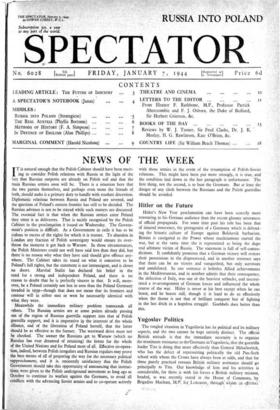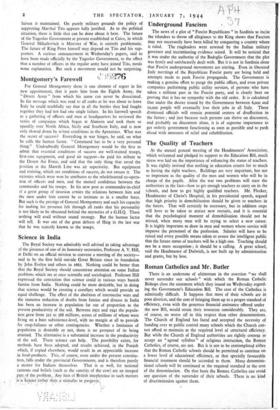Yugoslav Politics
The tangled situation in Yugoglavia has its political and its military aspects, and the two cannot be kept entirely distinct. The official British attitude is that the immediate necessity is to organise the maximum resistance to the Germans in Yugoslavia, that the guerrilla leader Tito is doing that more effectively than General Mihailovitch, who has the defect of representing politically the old Pan-Serb school with whom the Croats have always been at odds, and that for these purely practical reasons British military assistance should go principally to Tito. Our knowledge of him and his activities is considerable, for there is with his forces a British military mission, headed, as was recently stated in the House of Commons, by
Brigadier Maclean, M.P: fcc.I.:.ncastet, thro4gh. WI,Unt etlettivc
liaison is maintained. On purely military grounds the policy of supporting Marshal Tito appears fully justified. As to the political situation, there is little that can be done about it here. The future of the Yugoslav Government at present established at Cairo, in which General Mihailovitch is Minister of War, is entirely problematic. The future of King Peter himself may depend on Tito and his sup- porters. A curious announcement in Wednesday's papers, said to have been made officially by the Yugoslav Government, to the. effect that a number of officers in the regular army have joined Tito, needs some explanation. But such a movement would not be surprising.























